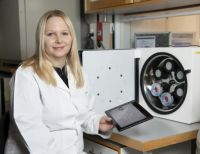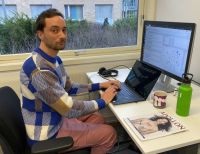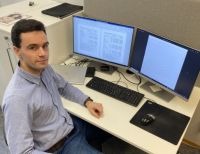The cluster will conduct research on the politics of sustainable development and will develop a new PhD programme focused on leadership for sustainable societal transformation.
The African Research Universities Alliance (ARUA) and The Guild of European Research-Intensive Universities (The Guild) recently launched three new Africa-Europe Clusters of Research Excellence (CoREs). Dan Banik leads one of the CoREs together with the University of Pretoria's Heide Hackmann.
On 25 September, The African Research Universities Alliance (ARUA) and The Guild of European Research-Intensive Universities (The Guild) launched three new Africa-Europe Clusters of Research Excellence, called CoREs.
One of these new CoREs is led by Professor Dan Banik at the University of Oslo’s Centre for Development and the Environment (SUM), together with Dr Heide Hackmann at the University of Pretoria in South Africa. The CoRE is titled The Politics of Sustainable Development: Squaring the Circle of Science and Democracy. It brings together researchers from the social sciences, humanities, natural sciences, and law to uncover the nature of the politics of sustainable development and how it affects political decisions.
 Dan Banik leads the new CoRE on politics of sustainable development.
Dan Banik leads the new CoRE on politics of sustainable development.
“Our starting point is that the politics of sustainable development has not received sufficient attention. Sustainable development frequently, albeit erroneously, functions as an apolitical device. This alleged neutrality makes the goal of sustainable development susceptible to co-optation and manipulation, thereby allowing it to endorse a wide range of disparate political objectives. By focusing on the science-policy-practice interface, the Cluster will generate original research relevant for policymaking and public action,” says Dan Banik.
Apart from conducting cutting-edge and interdisciplinary research on governance for sustainable development, the CoRE’s PhD programme will focus on building capacity and leadership for achieving sustainable development in response to climate change-related challenges. The CORE’s team aims to train a minimum of 40 PhDs at participating African universities over 10 years. The graduates, including many from the civil service, will harness their skills and research outcomes to devise and enact climate and sustainable development policies at both national and regional levels across Africa and Europe. The Cluster’s activities will also involve the development of advanced doctoral courses for graduate students enrolled at existing programs at partner institutions and an interdisciplinary research school for PhD students.
In addition to the University of Oslo and the University of Pretoria, the CoRE comprises partners from the University of Nairobi, the University of Addis Ababa, UCLouvain, the University of Malawi and Utrecht University.
SUM also involved in CoRE on pandemics and shocks
The three new Clusters now launched will join the Africa-Europe CoREs that were launched by both networks last June, bringing the total number of Clusters up to 20, now involving over 250 researchers in 60 Universities as well as research institutes.
 Katerini Storeng is a partner in the CoRE on pandemics and shocks.
Katerini Storeng is a partner in the CoRE on pandemics and shocks.
Associate Professor at SUM, Katerini Storeng, is one of the partners in a CoRE launched in June titled Preparedness and Response to Pandemics and Shocks, which is led by researchers at Makerere University in Uganda and UCLouvain in Belgium. This cluster will generate evidence and innovations to strengthen capacities and minimise the devastating impact of pandemics and shocks worldwide. The researchers also aim to build a critical mass of multi-disciplinary experts who will foster contextually relevant decision-making on this topic within the African and European Unions.
About the Africa-Europe Clusters of Research Excellence (CoRE)
The Africa-Europe Clusters of Research Excellence (CoRE) bring together distinguished researchers from universities and research institutes across both continents, from ARUA, The Guild and beyond the two networks. Each cluster addresses a key societal challenge, framed by the Global Gateway’s AU-EU Innovation Agenda, in the context of local perspectives to ensure maximum scientific and societal impact.
The University of Oslo is a member of The Guild, which comprises twenty-one of Europe’s most distinguished research-intensive universities in sixteen European countries.
Read more about the new CoRE launch here
















